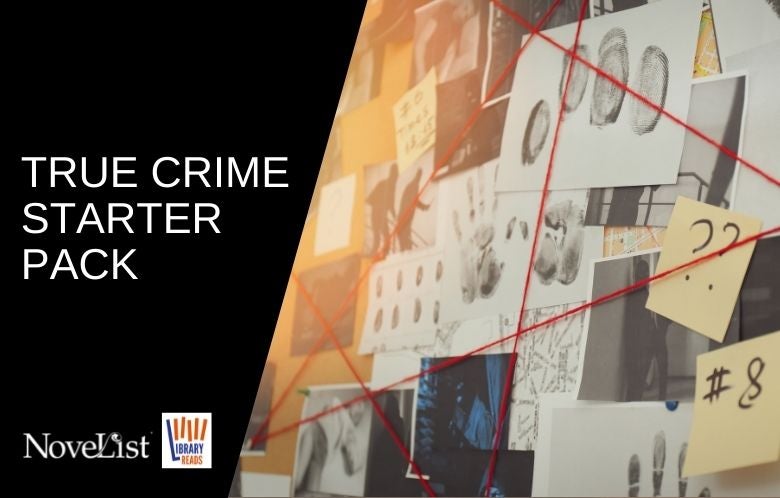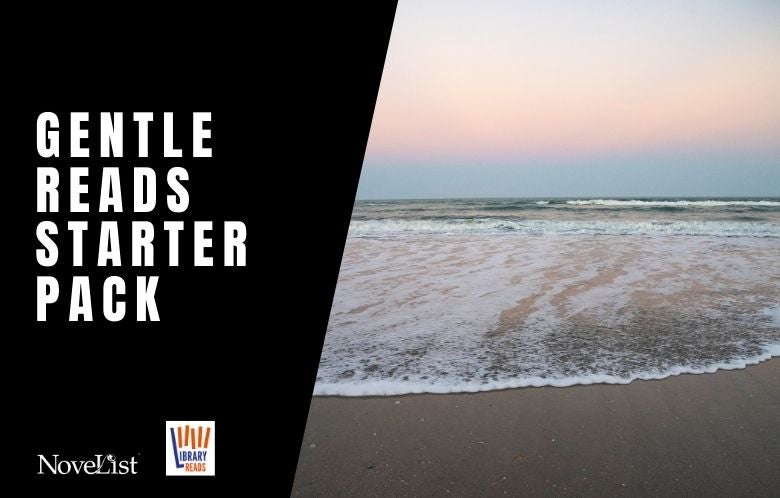Tales of serial killers, charismatic cult leaders, and heinous heists — all of these, and more, can be found in the pages of True Crime. In the Crash Course in True Crime, Kate Fais and Susen Shi, from the New York Public Library, joined me to dive into the genre. We discussed the history, what draws readers to tales of crime, the different subgenres, how you can help readers, and books we can't wait to read. If you want a good starting point, take a look at the five books that Kate, Susen, and I recommended.
I'll Be Gone in the Dark: One Woman's Obsessive Search for the Golden State Killer by Michelle McNamara
This haunting book, published posthumously, follows Michelle McNamara as she learns about the unsolved cases, including 13 murders, committed by the Golden State Killer between 1974 and 1986. She provides details of the crimes without being exploitative, giving attention to the victims and the effects of the crimes on their lives. In the process, she crafts a riveting and haunting tale of a human monster and the hunt to find him. The fact that McNamara passed away before finishing the book and before police arrested the killer makes it even more poignant.
Catch and Kill: Lies, Spies, and the Conspiracy to Protect Predators by Ronan Farrow
Sobering and timely, Ronan Farrow shares the story of his research into the sexual assault and harassment allegations made against Harvey Weinstein and Matt Lauer and the obstacles he encountered along the way. Met with pushback from his employer and Weinstein, Farrow continued investigating these horrific claims even when faced with legal threats. This intense book highlights the issues many women face and the increased awareness in the wake of the #MeToo movement.
Furious Hours: Murder, Fraud, and The Last Trial of Harper Lee by Casey N. Cep
In the late 1970s, Harper Lee was searching for inspiration for a second book when she heard about the trial of the man who killed an alleged serial killer. While attending the funeral of one of his suspected victims, Willie Maxwell was shot by Robert Burns. Burns' case brought to light the murders the community suspected Maxwell of committing, one of which he was on trial for at the time of his death. The story intrigued Lee, who traveled to Alabama to attend the proceedings. While there, she gained an inside look at the Deep South's justice system and racial politics and began writing a true crime book that she ultimately abandoned. Casey Cep crafts an accessible and well-researched combination of a biography of Harper Lee, the creation of her unfinished book, and the sensational story of Willie Maxwell.
American Sherlock: Murder, Forensics, and the Birth of American CSI by Kate Winkler Dawson
American Sherlock is for the reader who loves watching CSI or Forensic Files. This richly detailed and compelling biography of Edward Oscar Heinrich gives insight into the life of a man who, although not a household name, was responsible for creating some of the essential tools still used in investigating crimes. Fingerprints, blood spatter, ballistics? Those are all due to Heinrich, and Winkler Dawson explores the development of these scientific tools while describing the crimes that inspired them.
The Ground Breaking: An American City and Its Search for Justice by Scott Ellsworth
The Ground Breaking highlights societal issues through the investigations of a single event. Historian Scott Ellsworth writes about his journey back to his hometown of Tulsa and his investigation into the 1921 Tulsa Race Massacre. He examines some of the challenges involved in gaining more information (such as the destruction of official records) and corrects myths about the cause of the violence. Ellsworth doesn't just look at the historic crime but also delves into the lingering effects of the violence and the present-day race relations in Tulsa. The result is a moving, thoughtful look at an often-ignored tragedy in American history.

Download a printable flyer here.
Yaika Sabat is Senior Readers' Advisory Librarian. She is currently reading Goddess of Filth by V. Castro.



